“We are moving from point A to point B. What we pay attention to along the way is how we live. We fight, socialize, meet someone, learn something … “
Dima Zhila found me on Facebook. He said that in 2014 he was in the Kharkov and Kiev Maidans, then he went as a volunteer to the Donbass. In 2016, he lost his sight and phalanges on his left hand. Now in Leiria, he came to Portugal for work.
For me, his story was a revelation about man and country, public and private, fate and striving for life, which pushes us forward. Below is my interview with Dima, along with my photographs, published with his permission.

“I was never a high-potential guy, but I had all ten fingers, 20/20 vision and plans for the future.”
Since I was four and with a key around my neck, I grew up on the streets in the 80s, in a blue-collar KhTZ district. I remember my mom would leave the pan of cutlets on the stove for me and leave for work until very late. In the evening she would ask: “Dima, where are the cutlets? “I ate them!” I was very slim, so my mother knew that I could not finish the whole pot. She would ask the neighbors, and they said: “Dima fed the cutlets to stray dogs in the yard” Mom went for the belt: first beating, then consoling.
When my daughter was born from my first marriage, she had problems with the hip joint. Doctors said she would never walk. She was like a young Forrest Gump, with leg braces. Then I railed a lot: I went to church and prayed in my own way. I really wanted her to walk. I started to notice people with similar problems. As I was driving my car and would see a man in a wheelchair — I would stop to talk and offer my help. Some would talk, some would not and would be afraid of me, others thought that I was a hustler scheming to steal their apartment.
Then there was an idea to visit the orphanage. I got together with some guys, gathered some donations, and off we went. We gave the children a boxing class. We wanted to show that there was another way — not just the basement and sniffing the glue. And then the war started, and two years later it was I who needed help.

“We helped volunteer battalions, people in the war zone, refugees and everyone who we met along the way.”
In Kharkov, we drove away the separatists. We fought and did everything possible to prevent our city from becoming another Donetsk or Lugansk. At that time, regular folks were persecuted for national symbolism. Separatists beat everyone who adhered to a pro-Ukrainian or pro-European direction: they crushed their heads, ran them over with Jeeps, doused with chemicals and sewage.
Kharkov was on the brink of collapse and we were the “Maidan guards” in our own city. It was hard to watch the violence and brutality. The city folk would get assaulted and beat up in their own town square — it reminded me of a shot from the film when they carried Christ through the crowd, and people would cast stones at him. All those faces, marred by hatred, anger, narrow-mindedness, savagery… And this is in the age of reason, technology, intelligence. In the age of people.

In May 2014, we went to a military training camp, five klicks from the Russian border. We had to help with skirmishes with the locals, to ensure the regular Ukrainian troops can deploy on the front line. We did not stay there long and soon parted our ways. I thought to myself, if I get a summon, I will enlist (there was no general conscription at that time, all militia units were voluntary. — Ed.).
Many of my buddies ended up in the Azov and Donbass battalions. I became friends with Pasha, he just got into the Donbass. The battalion liberated city after city, and he called on me to join them. I decided to take my oldest daughter to first day of school (September 1st) and then think about joining Pasha. He left for Kremenchug, and, late August, Ilovaysk happened (military operations in the area of the city of Ilovaysk, during which Ukrainian forces were surrounded. — Ed.). If I had gone there, I do not know what would have happened. Pasha went missing in action, his mother, Galina, has been waiting for him for six years now.
After that, I started volunteering. I did what I could. At the time, I had a decent job and donated one tenth of my earnings to volunteering and tried to enlist my friends. We later joined forces with a group called “East and West together” and operated together for two years. We bought food, medicine, gun sights, body armor, night vision gear, uniforms, equipment, camo netting. Not by truckloads, of course, but the shipments were quite large. Deliveries were targeted — we stopped by roadblocks and handed over the goods to the fighters. It was a drop in the ocean, but at that time it was impossible to help everyone.
We drove a lot: from Lugansk to the Donetsk region, through villages Luganskaya, Krymskoye, Rubezhnoye, Novoaydar, Popasnaya, Schastia, Bakhmut, Konstantinovka, Dimitrovo. Towns with beautiful names, scary history, and gloomy landscapes. When you arrive at the checkpoint you see people with gunpowder burns. Faces like Rambo, only in real life. All in rags and covered in dirt from explosions, looking like outlaws. When you leave, they step outside to say goodbye. Big guys, from all over Ukraine, unshaven, waving. And your eyes start tearing up because you do not know who is going to be there next time.
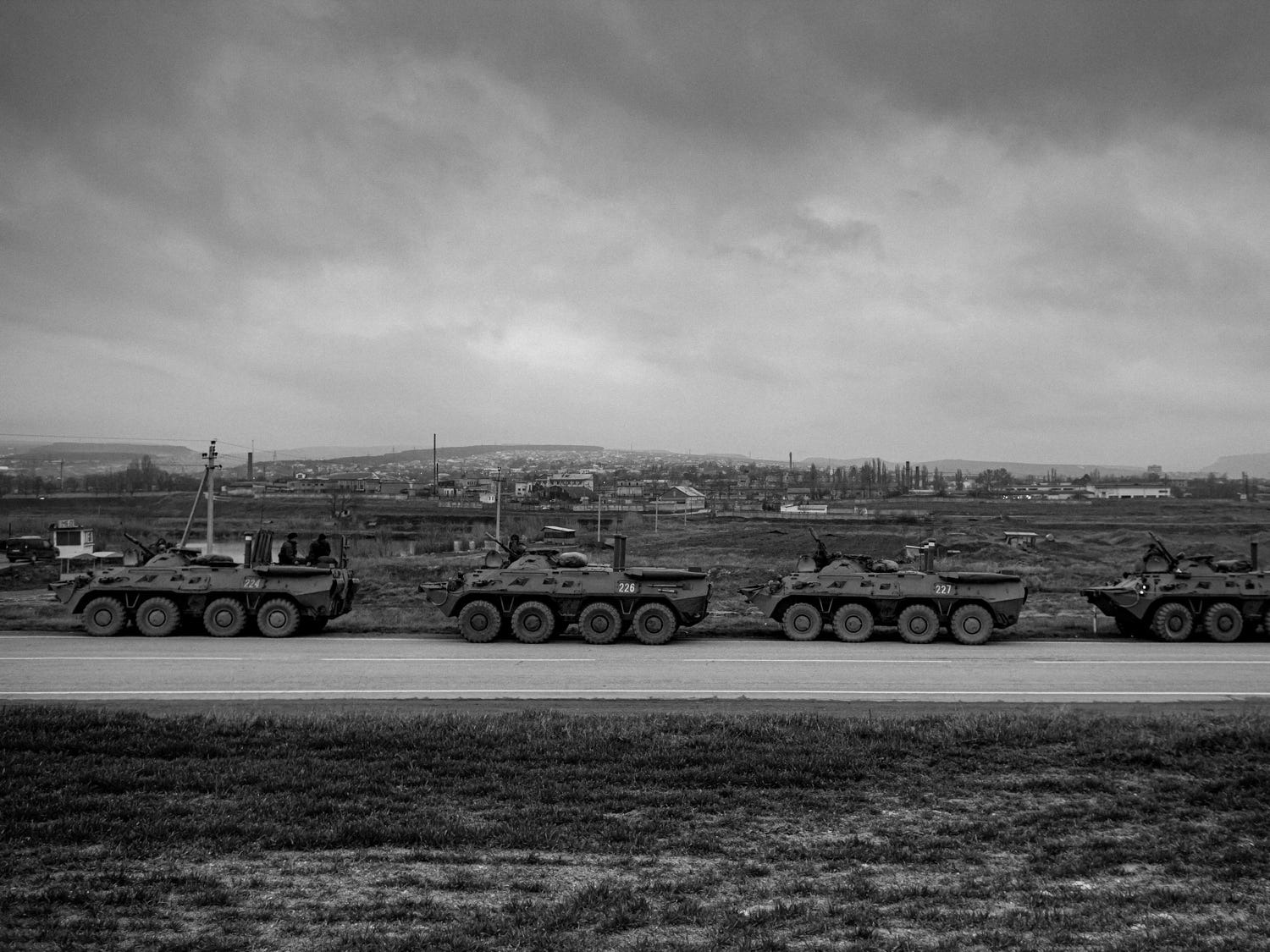
“I kept touching my face and asking myself ‘Have my eyes leaked out?’ The explosion was like being hit by a sledgehammer with my head against the anvil.”
I kept on riding until one day I was in the wrong place at the wrong time. There was an explosion, I got wounded by mine fragments. As I was told then, my thumb flew straight away, and the other two phalanges were amputated in the hospital. Doctors wanted to amputate the whole hand, but I would not agree. My child was about to be born — what amputation are you talking about?
The first days in the hospital, I could not see anything and was simply happy to be alive. And then I started to think “What’s next”? I realized that I will not get my fingers sewn back and that earlier I was “before”, and now I am “after”, and, somehow, I had to live with it. I could not sleep, wandered along the hallways at night. On the fifth day I saw the dawn — the right eye was alive! You have no idea how happy I was and how satisfied I was to go back to sleep.
People who were dear to me became even more so after that. I remember everyone who helped me, including doctors and nurses. I remember all the guys who took the time and came to support me and my parents. When they would call me and ask, “Dimon, how are you? What happened? Where-how-why? How can we help you? — this was like an IV or medicine, like taking some sort of vaccine.
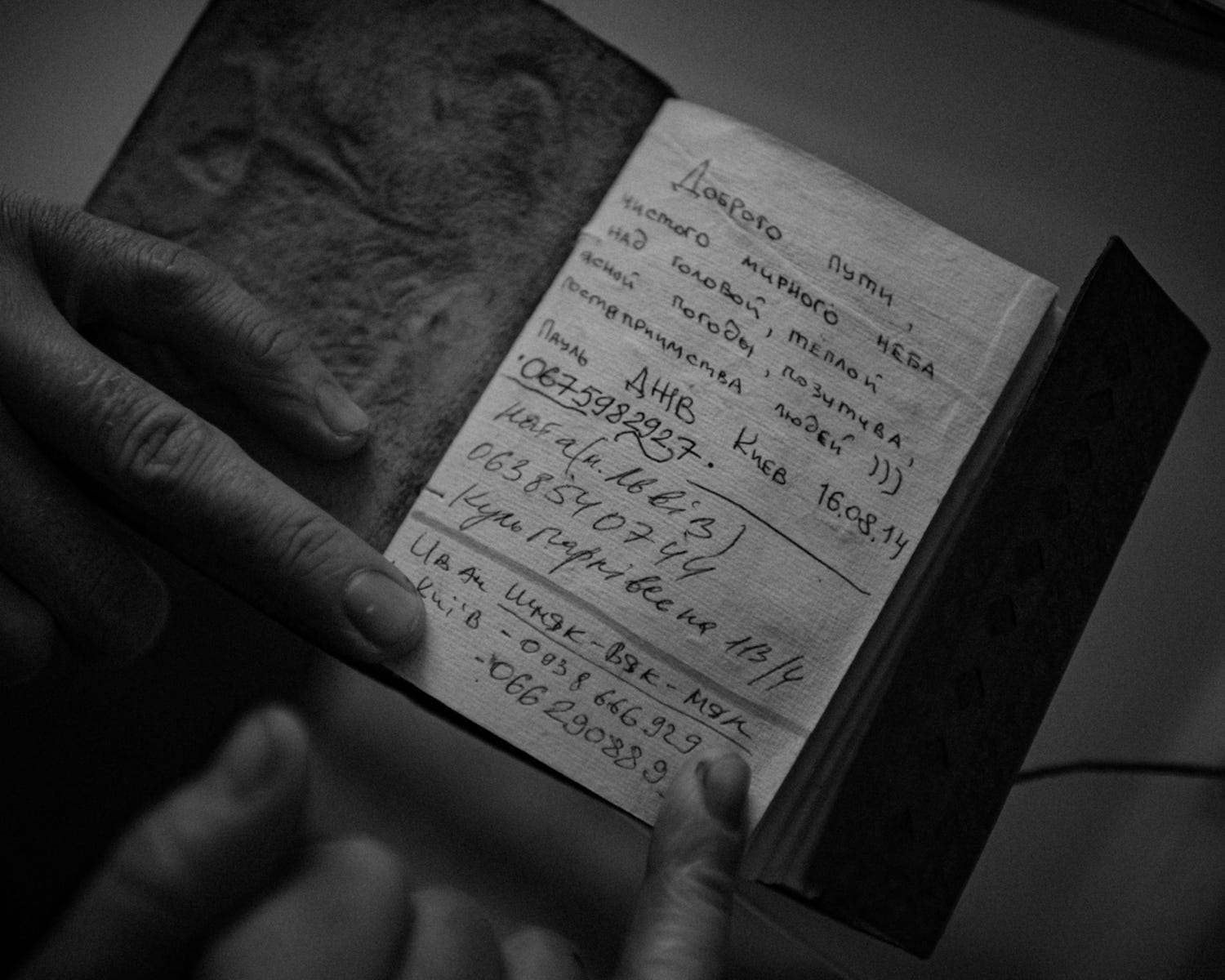
My rehabilitation was at home, I did not do anything special. I could not see with my left eye and the right eyesight was no good. It was not clear what was going on with my hand either. All of this was very depressing and there was no one to talk to: my mother was stressing out and my wife was pregnant. I got seriously depressed and I was able to get out of it only when, thanks to Elena V., I went to see “Strength of the Nation” (sports competition of the heroes of the Russian-Ukrainian war. — Ed.). Later I got a job.
I got wounded in November, and in March I started in landscaping business, working with a shovel and a wheelbarrow. At the same time, I had job doing housecleaning and driving a taxi. Then, using my connections, I got an office job where I worked with people with disabilities. It is great that such companies exist — they give you the opportunity to realize your potential. It is very important to feel needed and get paid for your time. It is impossible to survive in Ukraine on disability pension of 1,500 hryvnias per month (this is 55 dollars).
My second daughter was born. When we got home from the hospital, we found that our apartment was robbed. They took the money we saved to support us the first time after the birth of the baby. They stole a computer, threw around clothes and pictures of my amputated fingers. I was very confused and angry at the situation. In 2018 I made up my mind and decided to apply my skills, which were limited at that time, in Portugal.
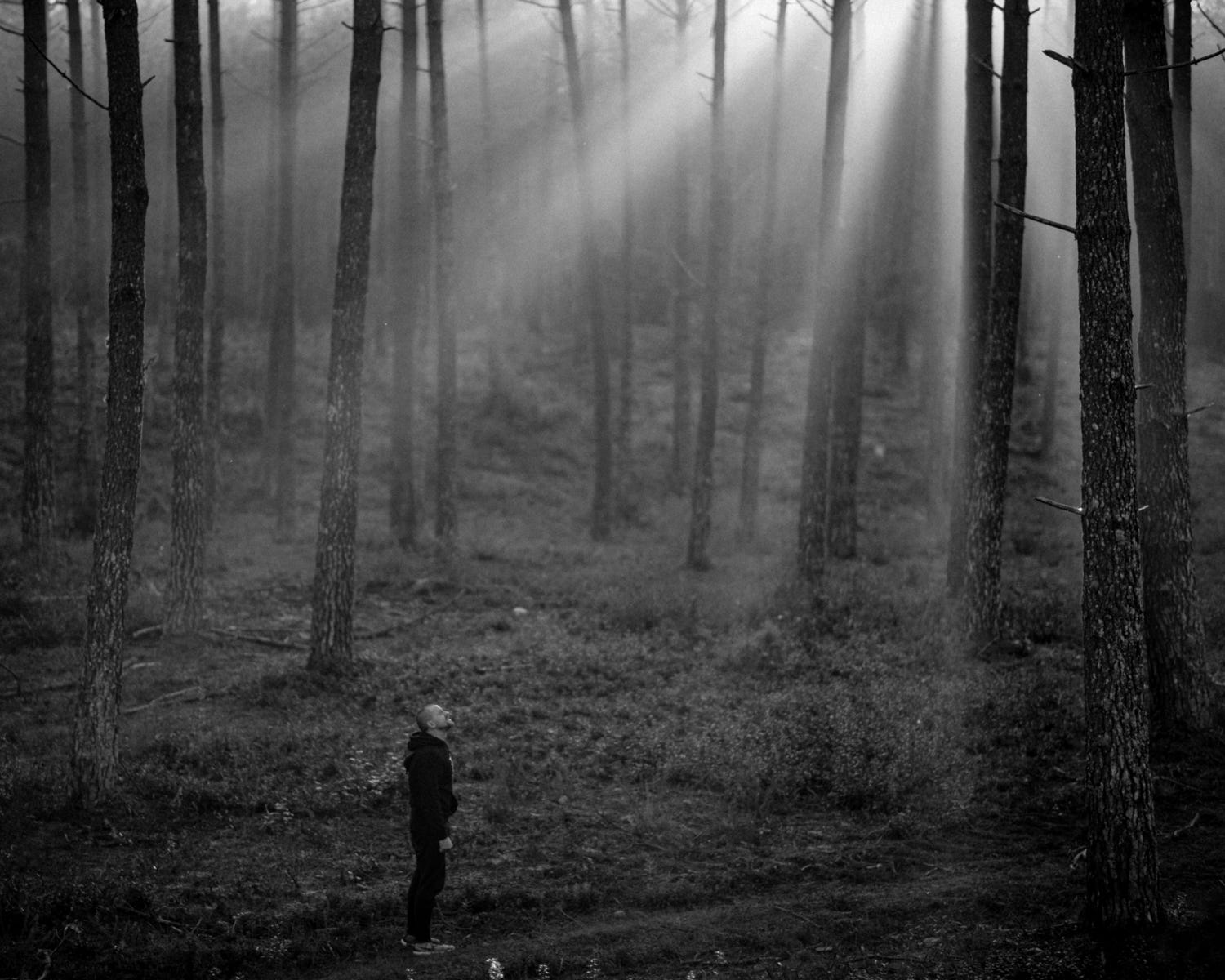
“I had a choice before me: be on disability (55 dollars a month) and survive doing odd jobs or do something else.”
Here is how it was with me. When you get out of the comfort zone, different things start to happen. It is like the immune system: if you do not stimulate it, the body fades away. I had a feeling of stagnation and being in a swap. I kept turning the “wheel of life”, but did not get any satisfaction. So, I decided to change the circumstances and leave. To try to make myself stronger, kick the “immune system”, while I was young. I could always come back.
I arrived in Portugal and everything was new to me here: the palm trees, the birds, flowers, aromas, tastes, people are enjoying their lives. I looked at everything through rose-colored glasses, got new plans. Initially, my uncle and his family helped me a lot as they have been in Portugal for a long time. My cousin found me a job in the forest. You follow a man with a chainsaw, he fells a pine, cuts it into five or six equal parts, cuts off small branches. My task was to sort large and small pieces.

The work was not easy. I was the only Ukrainian among Brazilian crew, but they accepted me as their own. Of all the crew, the Portuguese patron (chief — Ed.) for some reason especially “loved” me. He screamed and gestured at me all the time so that I would try harder. He cut me no slack — once I showed up, I had to work.
After the forest job, on the advice of my relatives, I got a job at a steel plant not far from here. I still work there on the machine, which makes holes in the parts, and on the press, which bends these parts. I work as an ajudante, it is like a helper. The partner sets the pace and I follow.
We have a good team, mostly Portuguese. I can argue with those who say that they are anti-social and defensive. A lot of guys in the factory know what happened to me. At first, they helped me during hard times for me. They used hand gestures trying to explained things, as they did not speak English. I was lucky meeting them.
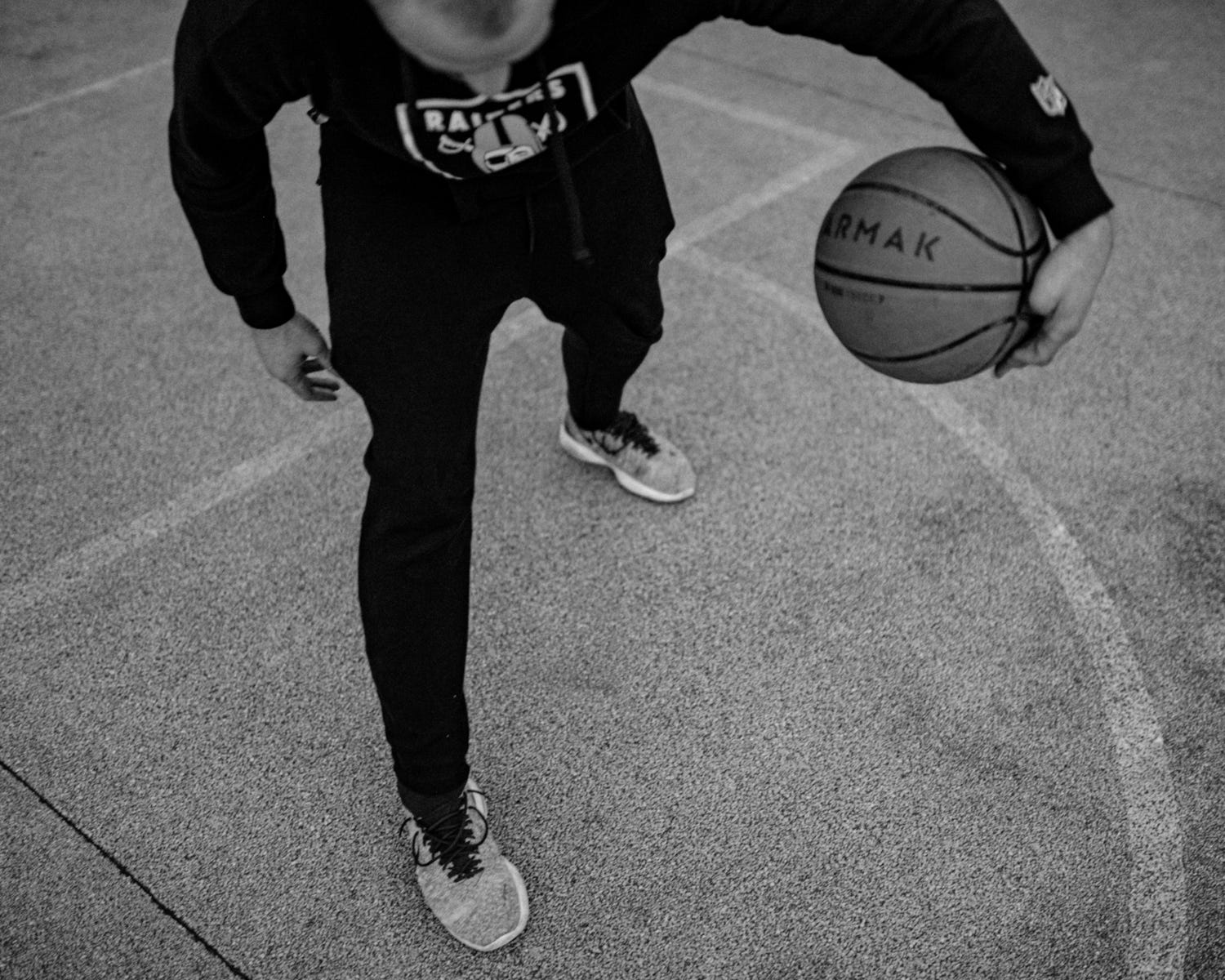
“I want to live, and I will. I have goals.”
I plan my future, the future of my children and my parents. I have a pyramid of desires for this. There is nothing abstruse about it, it just helps put dreams in order. By writing down your desires for five-to-ten years in advance, you declare them to the world. It really works. It is a pity that I did not know about it before.
At the top of the pyramid are plans for the day, and at the bottom are life values. I have a family in there, children, health, joyfulness, self-development and spirituality. I should probably add love, but it is in the family. A family cannot live without love. A family without love is marriage. Such a stuffy word.
I invest my time into the future of my children. The ten hours that I give to the factory are monetized and give me the opportunity to make dreams come true. This may not make me happier, but it definitely brings me closer to my goal.
In the next two years I want to have a surgery to restore my vision. Previously, this goal was a priority, but now it got pushed out. Maybe I got used to it. I do not want to get by with just one eye, I will see with both!
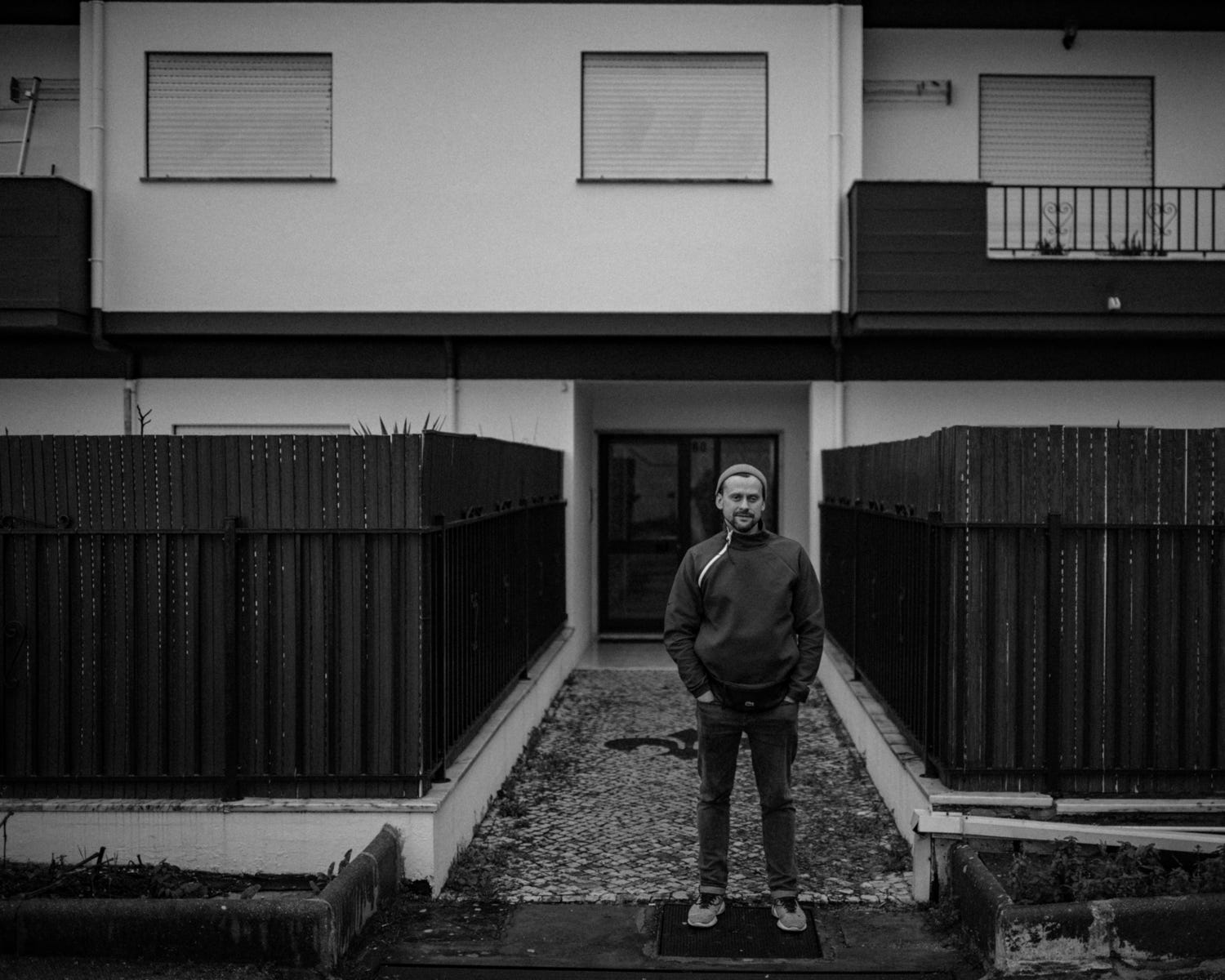
I survived the clinical death at birth — striving is in my blood. How could it be different in my circumstances? Resources get mobilized, the ones you did not know existed. My mom says life is testing us: someone with circumstances, someone with friends, turning some others into animals. And you are balancing on the brink: what you do defines how you will live.
Photo and conversation with the hero by Dima Kornilov.